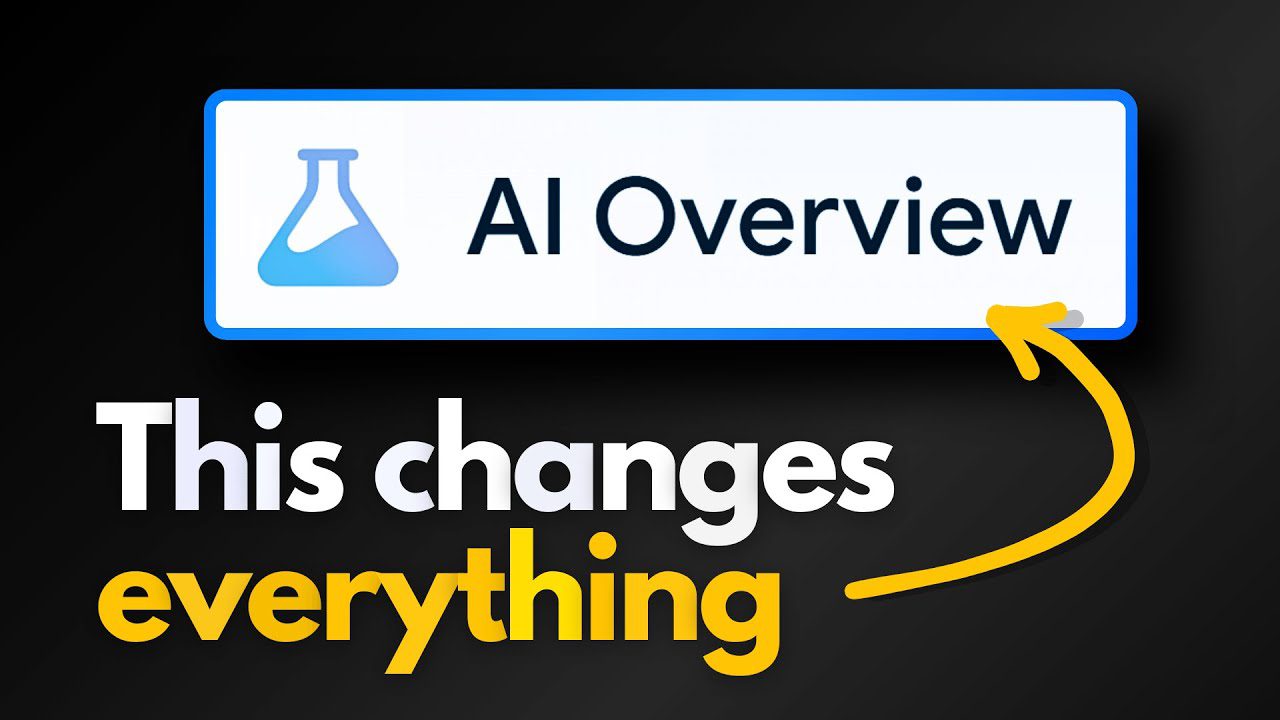I’ve been working in SEO for years, and I can confidently say that search engines over the entire internet are undergoing one of the most significant transformations I’ve ever seen. The Emergence of AI Overviews in Search Results is changing the game for us ENTIRELY. Gone are the days when search engines simply retrieved links, now, they’re looking for instant, context-rich answers to cater directly to the user’s needs. With tools like Google’s Search Generative Experience (SGE) and Bing AI leading the charge, the way we interact with search results has evolved.With my years of observation and experience, in this blog, I’ll break down what AI overviews are, how they’re impacting SEO, and what businesses like yours need to do to stay competitive in this new era of transformation.
What Are AI Overviews, and How Do They Work?
I know you have already seen AI overviews popping up every time and maybe you have not even put a closer eye. However, let me go back and start by explaining what AI overviews actually are. AI overviews are automatically generated summaries that appear at the top of search results, providing users with direct answers without requiring them to click through to individual websites.
They’re powered by advanced technologies like machine learning, natural language processing (NLP), and massive datasets that allow them to synthesise information in real time. The good thing about AI Overviews? You do not have to rank on the SERPs to make it to the bar, all you got to do is add value and answer to the specific query of the user and boom, you are leading everyone on the SERPs, even leaving rich snippets behind.
I would say the emergence of AI Overviews in Search Results is a direct result of these technological advancements. Here’s how they work:
-
Machine Learning & NLP:
AI overviews don’t just match keywords they now interpret the context behind a query. For example, if someone searches for “best budget laptops for students,” the AI understands the intent and delivers a tailored response and not just random searches stuffed only with keywords.
-
Conversational AI & Generative Search:
The responses mimic human conversation, offering detailed explanations. This makes search results feel more interactive and engaging rather than just a computer answering back.
-
Personalised Search Results:
AI overviews are customised based on factors like user history, location, and search intent. This means two people searching for the same thing might see different results and hence, you got to target regions and audience even more specifically than ever before.
-
Voice and Visual Search Integration:
These overviews are also enhancing voice and image-based searches, making them richer and more interactive. For instance, if you ask your smart speaker, “What’s the recipe to make a cheesecake?” you’ll get a step-by-step guide without needing to visit a website. It’s quick, responsive, and, most importantly, highly valuable to the user.
These advancements mean that traditional SEO tactics are no longer enough to stay visible. Now the websites need to focus on creating in-depth, structured content that AI can easily track and feature in overviews.
How AI Overviews Are Impacting SEO
Now if you me how AI overviews are impacting SEO, I would again that the emergence of AI Overviews in search results is changing the way websites gain traffic and visibility, I have experienced it, especially in the past 3 years. This is what I have observed over the years and what I think will have gone wrong:
-
Decreased Click-Through Rates (CTR):
One of the biggest challenges is that AI overviews provide direct answers, which means users MAY NOT need to click through to your website at all. For example, today, I searched for “how to create a website,” and the overview displayed a step-by-step guide right in the search box, reducing the need for me to even click on external clicks.
-
Keyword Optimization Is Shifting:
Search engines are now focusing more on user intent rather than exact keyword matches. This means that keyword-based SEO is becoming less effective, or maybe it’ll go extinct. Instead, businesses need to focus on topic relevance and comprehensive content.
-
Content Relevance Is Key:
AI overviews prioritise well-structured, authoritative content. Superficial, keyword-stuffed pages are losing their effectiveness. For instance, a well-researched guide on “best bicycle in the USA” that includes expert reviews, comparison charts, and user ratings is more likely to be featured in AI overviews than one with just plain content.
-
Increased Competition for Featured Content:
With the Emergence of AI Overviews in Search Results, the competition for visibility has intensified. Websites must optimise their content by enhancing structured data, using clear formatting, and demonstrating expertise.
In short, businesses need to adapt their SEO strategies to align with AI overviews. This means focusing on authority-building and creating high-value content that answers users’ questions comprehensively.
How to Optimize for AI Overviews in Search Results
So, how can you stay competitive in this AI-driven search environment? Here are the strategies I recommend:
-
Prioritize E-E-A-T:
AI overviews favour credible sources, so demonstrating expertise is crucial. Make sure your content is written by knowledgeable authors and backed by reliable data. (Just if you are wondering what E.E.A.T stand for, it is Experience, Expertise, Authoritativeness, Trustworthiness).
-
Optimise for Conversational and Long-Tail Keywords:
Since AI-driven search relies on understanding user intent, focus on conversational and long-tail keywords. For example, instead of targeting “smartphones,” aim for “best budget smartphones for photography enthusiasts.”
-
Enhance Structured Data and Schema Markup:
Providing well-organized, machine-readable content helps search engines extract relevant details. For instance, using FAQ schema for common customer queries can increase your chances of appearing in AI-generated results.
-
Leverage Multimedia Content:
AI-driven search prioritises diverse content formats, including videos, infographics, and interactive elements. Embedding a video tutorial in your blog post can boost your chances of being selected for an AI overview.
-
Monitor and Adapt to AI Search Evolution:
It is essential to stay updated with AI search trends. Analyze your performance regularly and adjust your strategies to align with the latest developments.
Will AI Overviews Replace Traditional SEO?
This is a question I hear a lot: Are AI overviews going to make traditional SEO obsolete? The short answer is No, it will not; however, they are changing the game. Here’s my take:
-
Traditional SEO Strategies Are Evolving:
While backlinks and technical SEO still matter, high-quality content and structured data are now more important than ever.
-
Content Depth Matters More:
AI overviews favour comprehensive, well-researched content over short, keyword-focused articles. If you want to rank, you need to go deep.
-
SEO Professionals Must Adapt:
Understanding how AI generates search overviews allows marketers to craft content that aligns with AI search behaviours. It’s about working with the technology, not against it.
The Emergence of AI Overviews in Search Results is not the end of SEO, it’s a new chapter. Rather than seeing it as a threat, I believe businesses should leverage it to enhance their content strategies and maintain organic visibility.
FAQs
-
How do AI overviews in search results impact website traffic?
AI overviews can reduce click-through rates by providing direct answers. To counteract this, focus on creating authoritative, high-value content that offers additional insights beyond what an AI overview can summarise. For example, include downloadable guides or exclusive tools.
-
Can businesses optimise for AI-generated search results?
Absolutely. By prioritising structured data, using conversational keywords, and demonstrating expertise, businesses can improve their chances of being featured in AI-driven search results. Interactive content like quizzes and calculators can also help you stand out.
-
Will traditional SEO still be relevant with AI search overviews?
Yes, but SEO is shifting toward intent-based strategies. Optimising for AI overviews requires adapting your content to match AI’s understanding of user queries. This means providing clear, structured, and authoritative content.
-
How does AI determine which content to feature in overviews?
AI selects content based on relevance, credibility, structured data, and user engagement. Websites with well-organized, high-quality content that aligns with AI’s natural language understanding are more likely to be featured.
-
Should businesses still focus on backlinks with AI-driven search?
Yes, but quality matters more than quantity. AI prioritises authoritative sources, so focus on earning links from reputable industry sites.
Final Thoughts
The Emergence of AI Overviews in Search Results undeniably transforms the SEO landscape. As someone who’s been in this field for years, I can tell you that businesses that adapt to these changes will thrive. By focusing on authority, structured content, and user intent, you can turn AI search advancements into opportunities rather than obstacles.
The key is to stay proactive and embrace and adapt to AI as a tool rather than a challenge. So, how is your business adjusting its SEO strategy? Let’s discuss your biggest challenges and find solutions together!




